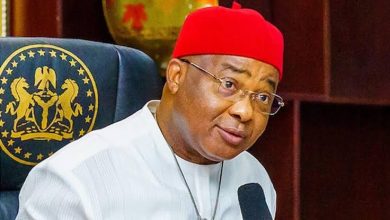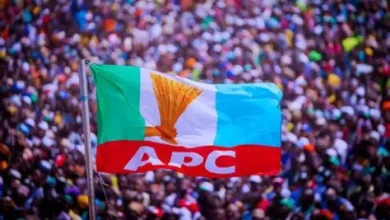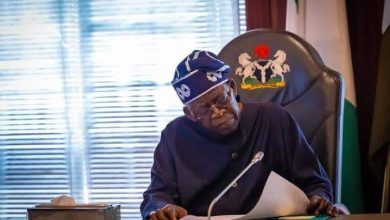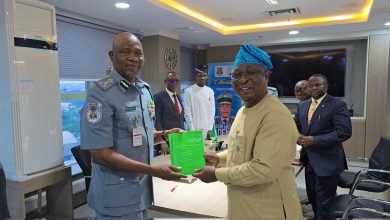The Times Fact Check: Dr. Kayode Olanorin’s Media Police

Media Police

Truth Watch is a public interest column dedicated to exposing false claims, spotlighting ethical concerns in journalism, and equipping the public with tools to navigate today’s fast-changing information landscape.
The feature is part of a wider effort to strengthen truth and accountability in media.
This week’s top false claims
Dangote Refinery clarifies shutdown rumour
On 9 August, social media was flooded with claims that the Dangote Petroleum Refinery had shut down operations, suspended truck loading, and was on the brink of triggering a nationwide fuel shortage.
The speculation, carried largely by unverified blogs and WhatsApp chains, spread fast enough to unsettle market watchers.
In a swift response, Anthony Chiejina, the refinery’s group chief branding and communications officer, dismissed the rumour as baseless.
Speaking on behalf of management, Chiejina reaffirmed that the facility is “fully operational,” delivering over 40 million litres of premium motor spirit (PMS) and steady volumes of diesel daily. He explained that the intermittent sale of residual catalytic oil (RCO) is part of normal business operations and that routine maintenance activities do not disrupt supply.
No evidence has emerged to support claims of a shutdown, and as of 15 August, deliveries remain uninterrupted. The rumour, Chiejina stressed, is the work of “unscrupulous and unpatriotic individuals” hoping to undermine Nigeria’s energy independence. “In truth, it was a baseless industrial falsehood with the potential to cause unnecessary market panic,” he added.
Lafia flyover collapse claim unravels under fact-check
Social media lit up with a flurry of dramatic photos and shaky videos, each claiming to show the spectacular collapse of Nasarawa’s brand-new N10 billion Lafia flyover.
The posts, amplified on X and Facebook, sparked public outrage. Commenters seized on the alleged collapse as a damning symbol of wasteful spending and substandard workmanship, with some demanding investigations into the contractors and state officials.
AFP Fact-Check’s investigation quickly punctured the narrative. The structure itself had never collapsed; rather, a single beam gave way during ongoing construction, resulting in localised damage but no structural failure.
To make matters worse, some of the most widely shared visuals were not even from Nasarawa state—they were recycled from unrelated incidents in other locations. The misleading imagery fed into the false perception that the entire bridge had crumbled.
Published on 12 August 2025, AFP’s report confirmed that the flyover is fully intact and operational, effectively restoring calm. The episode stands as a reminder of how quickly misinformation can corrode public trust in infrastructure projects, and how important it is to verify viral claims before concluding.
Media ethics spotlight
Retraction demands over NNPC GMD story remain unanswered
The Peoples Gazette’s August 2 report alleging that Bayo Ojulari, the group managing director (GMD) of the Nigerian National Petroleum Company Limited (NNPCL), was abducted and coerced into resigning by operatives of the Department of State Services (DSS) and the Economic and Financial Crimes Commission (EFCC) has sparked a high-profile media ethics dispute.
The story also linked the alleged plot to a woman close to the president, drawing widespread attention in the oil and gas sector.
Both agencies reacted swiftly: the DSS issued a 48-hour ultimatum on 5 August for a public retraction, followed by the EFCC on 6 August. Yet, as of 15 August, The Peoples Gazette has not amended or removed the story, leaving the matter unresolved and in the public eye.
In a 3 August statement, Bayo Ojulari dismissed the claims as false. He confirmed his resignation was voluntary, following official consultations after an oil and gas conference in Kigali.
“I was neither arrested nor forced out,” he said, adding that NNPC operations remain uninterrupted. Ojulari also refuted allegations involving Ola Olukoyede, the chairman of the EFCC, Adeola Ajayi, director-general of DSS and British-Nigerian businesswoman Olatimbo Ayinde, calling the report “fictional” and more suited for a Nollywood thriller than credible journalism.
Media Police will continue to follow up on this story and provide updates as developments unfold.
Tool of the week
Africa Infodemic Response Alliance (AIRA)
The Africa Infodemic Response Alliance (AIRA), launched by the World Health Organisation (WHO) Africa regional office, unites fact-checkers, media, civil society, and public health bodies to detect, correct, and counter harmful health misinformation across Africa.
Its network includes Africa Check, PesaCheck, Dubawa, FactCheckHub, UNICEF, Africa CDC, and UNESCO, enabling rapid cross-border collaboration. AIRA focuses on early detection, coordinated debunking, and public education, playing a vital role in safeguarding health and trust.
Quote of the Week
Journalists have a duty to report facts, not rumours. Publishing unverified stories damages trust faster than any scandal, and sensationalism might grab eyeballs, but it erodes credibility.





